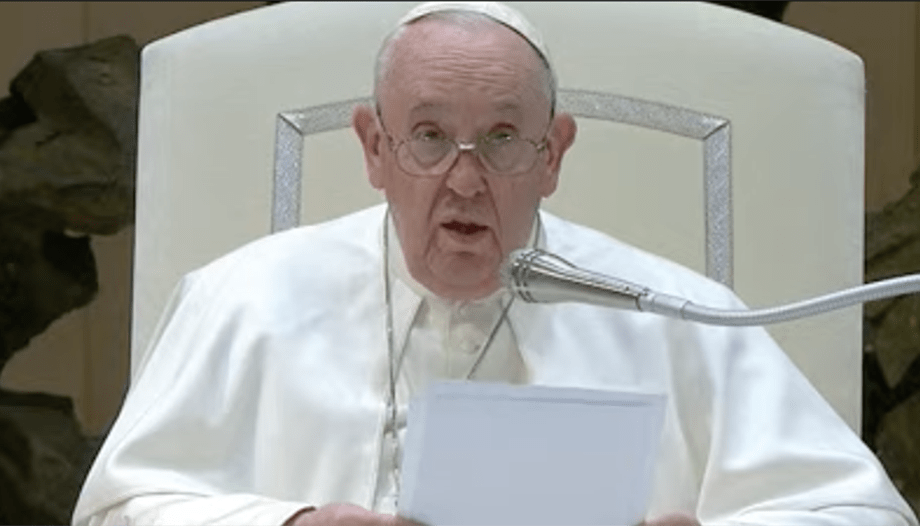The weekly catechesis of Pope Francis focused, on this day coinciding with the feast of the Conversion of St. Paul, on the characteristics of the first proclamation. The Gospel of Luke in which Jesus announces in the synagogue of Nazareth that in him is fulfilled the passage read from the prophet Isaiah was the guide for this audience in which the Pope highlighted five elements that this Gospel highlights about the encounter with Jesus, about the first announcement: joy, liberation, light, healing and amazement.
"We cannot speak of Jesus without joy, because faith is a wonderful story of love to share," the Pope said, speaking of joy as the key to the proclamation of Christ. "When joy is lacking, the Gospel does not pass" and the Pope recalled the saying that a sad Christian is a sad Christian.
The second element, liberation, gave the Pope the opportunity to deny that Catholics should proselytize, since Francis identifies proselytism with the imposition of burdens, thus affirming that "those who proclaim God cannot proselytize, cannot put pressure on others, but rather lighten them" and emphasized that, although it is evident that the Christian life entails sacrifices, "those who witness to Christ show the beauty of the goal rather than the fatigue of the journey".
Light was the third element glossed by the Pope. Francis pointed out how the healing of the blind, their return to see the light, was a messianic sign and a miracle never before narrated in the Bible because "it is not just a matter of physical sight, but of a light that makes us see life in a new way. There is a "coming to the light", a rebirth that happens only with Jesus. Then life is no longer a blind progression towards nothingness, but comes from the love of the Father, who cares for us, his beloved children. It is wonderful to know that our life is a gesture of love and this call to love and sometimes we forget it in the face of the mundane," the Pope improvised.
The last part of the catechesis was especially developed by the Pope who "deviated" from the script several times to deal with the last two points: healing and amazement.
In relation to healing. The Pope affirmed that "what oppresses us, above all, is precisely that evil that no medicine or human remedy can cure: sin" but Christ has turned the tables: "The good news is that, with Jesus, the ancient evil does not have the last word, the last word is the outstretched hand of Jesus, who heals us from sin, always and freely. Brothers and sisters, let us not forget, God forgets everything. God forgives us all our sins, for that He has no memory. We only have to approach Him. Jesus is always waiting for us to forgive us. But Father, I do the same things always, and He will do the same things always, He will embrace us and forgive us".
Finally, the Pope referred to the "surprises of God": "with Christ the grace that makes life new always comes and always amazes", Francis stressed, emphasizing that "the Gospel is accompanied by a sense of wonder and newness that has a name: Jesus".











